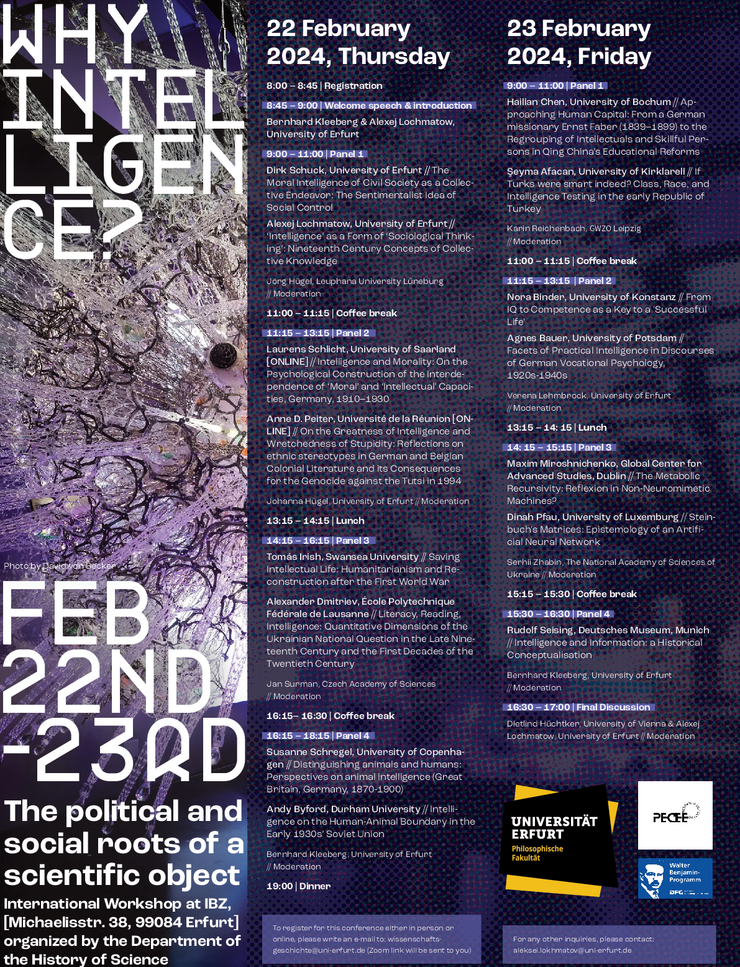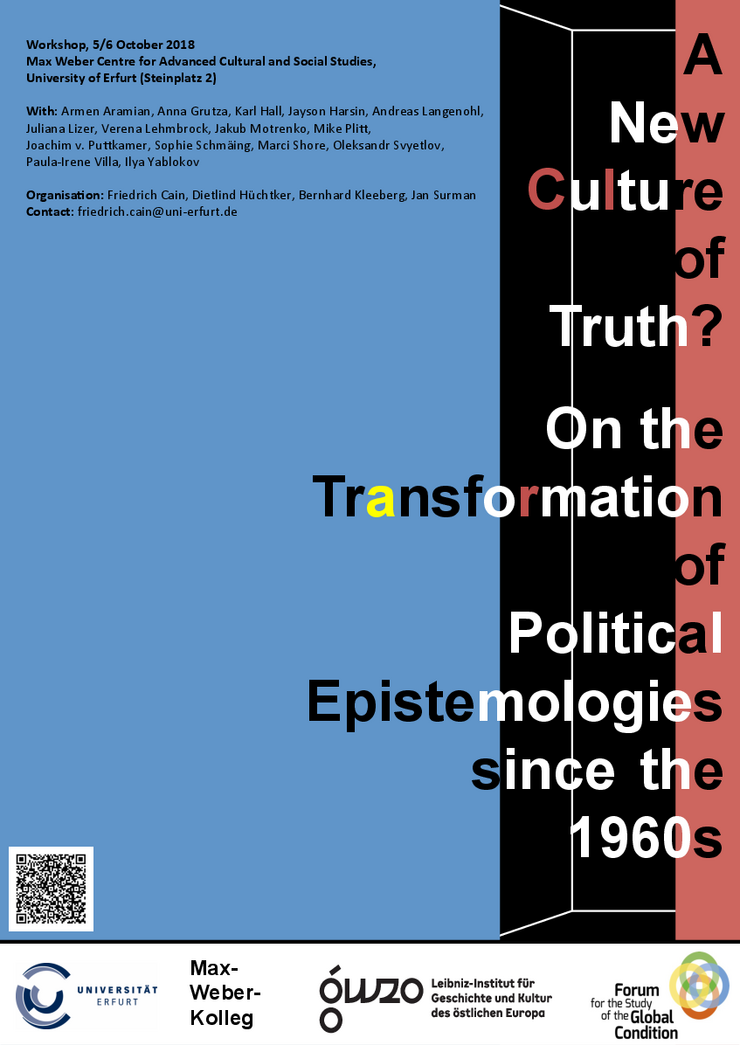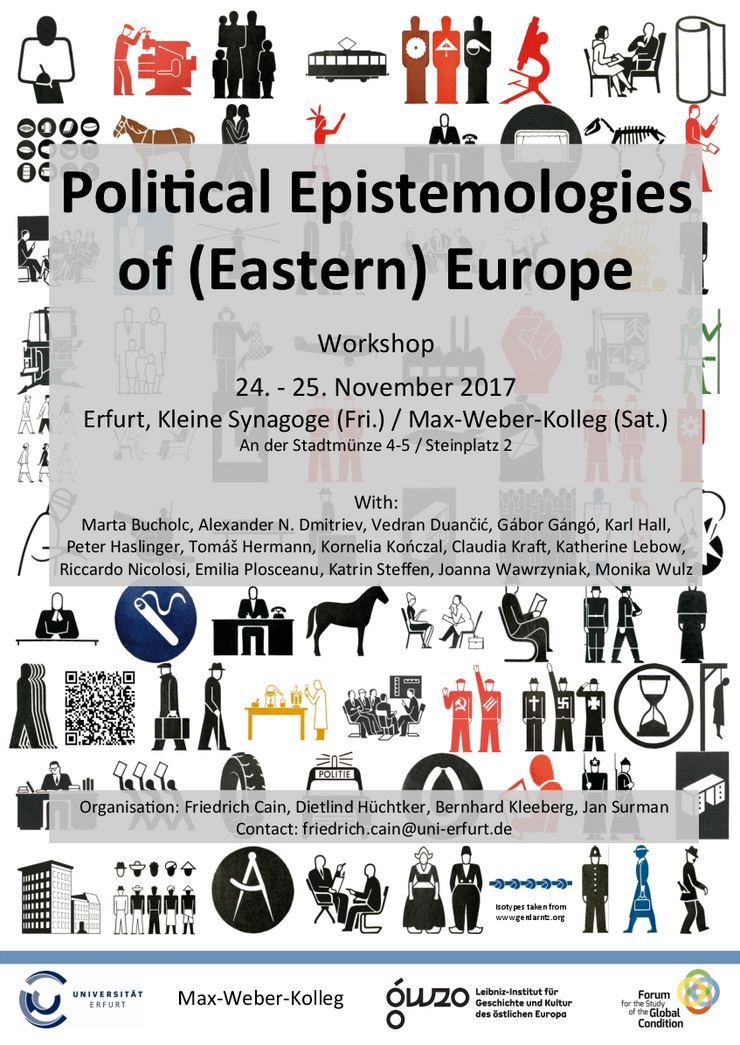Internationale Workshops
Sciences, Ideologies, and Religions in 20th Century Central, Eastern and Southeastern Europe
Sciences, Ideologies, and Religions in 20th Century Central, Eastern and Southeastern Europe
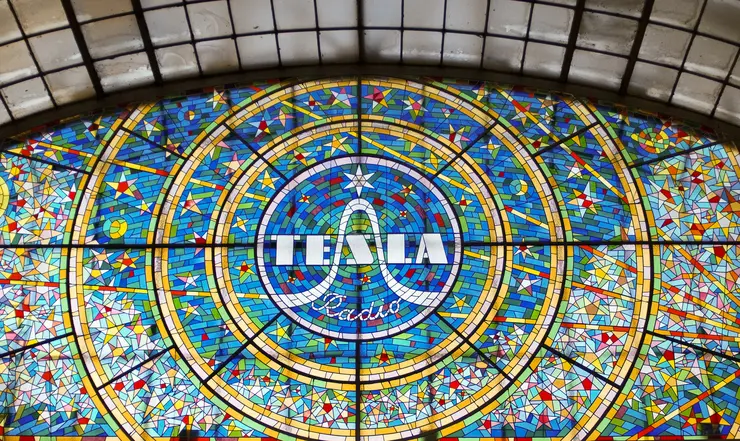
06.-07. Juni 2024, Athen/Griechenland
Veranstaltungssprache: englisch
Programm hier zum Download verfügbar
Call for papers: PDF
The Institute of Historical Research of the National Hellenic Research Foundation (Athens, Greece), the Faculty of Philosophy of the University of Erfurt (Germany), the Leibniz Institute for the History and Culture in Eastern Europe (Leipzig, Germany), the Faculty Center for Transdisciplinary Historical and Cultural Studies at the University of Vienna (Austria) and the Masaryk Institute and Archives of the Czech Academy of Sciences (Prague, Czech Republic) organize an international conference on the intersections of sciences, ideologies, and religions in the 20th century in Central, Eastern and Southeastern Europe. The aim of the conference is twofold. First, it aims to study historical cases, in which sciences, ideologies and religions seem to intersect, or in which boundaries were explicitly set. Secondly, from an epistemological perspective, we will investigate the practices and effects of delineation, the “boundary making” (Gieryn). How do making and doing “science”, “ideology”, and “religion” influence one another, how do they change during contact?
Thus, we invite papers that study boundaries and their making, shifting and acting in historical and epistemological dimensions. We take a strong interest in approaches to rewrite and redraw connections among different spaces, fields, and temporalities. We are also interested in research highlighting and problematizing the possible interaction and/or co-productions of knowledge among and across communities and epistemes and specific practices or agendas, on which they could emerge or that they brought forth. An explicit theme of the conference is that sciences, ideologies and religions are not only intellectual fields, but that they appear in action, and thus produce and interact with political and gender epistemologies. We especially welcome contributions focusing on how the framework and case studies developed for/by the geographical area of Central, Eastern, and Southeastern Europe can interact with scholarship in subaltern areas and the global South.
We invite paper proposals, including a title and an abstract of max. 300 words, name(s), and affiliation(s) of the author(s), as well as contact information. The presentation time will be 20 minutes, with an additional time of 10 minutes for discussion. The conference language will be English.
Please submit your proposal via email (Kostas Tampakisand Friedrich Cain) by Monday, 18 December 2023. We especially encourage young scholars to apply. Notifications of acceptance will be sent by Friday, 19 January 2024.
The venue of the conference will be the National Hellenic Research Foundation in Athens. Attendance is free of charge. Organizers can cover the costs of travel and accommodation for those without institutional support.
Why Intelligence? The political and social roots of a scientific object (February 2024)
Why Intelligence? The political and social roots of a scientific object
University of Erfurt, 22-23 Feb. 2024
Organisers: Alexej Lochmatow
Funded by: History of Sciences, University of Erfurt /// Walter-Benjamin Programm, DFG
Contact: Alexej Lochmatow
Contributors: Seyma Afacan, Agnes Bauer, Andy Byford, Hailian Chen, Alexander Dmitriev, Tomás Irish, Bernhard Kleeberg, Alexej Lochmatow, Maxim Miroshnichenko, Anne D. Peiter, Dinah Pfau, Dirk Schuck, Laurens Schlicht, Susanne Schregel, Rudolf Seising
Moderation: Jörg Hügel, Johanna Högel, Dietlind Huechtker, Bernhard Kleeberg, Verena Lehmbrock, Alexej Lochmatow, Karin Reichenbach, Jan Surman, Serhii Zhabin
The triumph of intelligence in the late 19th and early 20th century made it one of the most popular research subjects in the history of science. Artificial and swarm intelligence, the sociological critique of the ‘I.Q. ideology,’ the racism of intelligence research, and the role of the discourse on intelligence in popular culture have been the central issues in recent scholarship. Our workshop aims to change the focus of these debates. We intend to discuss not intelligence research itself but the social and political conditions that allowed intelligence to advance to its leading position in the scientific agenda, as well as the constellation of developments in both sciences and humanities that prepared its career. Our idea is to explore this phenomenon in relation to central ‘sociological’ categories such as social grouping, morality, stability, and normality. We will also examine how the scientific authority of intelligence influenced not only conservative, meritocratic, and racist discourses, but also socialist, anarchist and other social theories orientated towards social inclusion. Thus, the questions of social and political grouping rather than the traditional perspective of differential psychology will come to the fore in our discussion.
Gendering Epistemologies – Gender and Situated Knowledge (Oktober 2022)
Gendering Epistemologies – Gender and Situated Knowledge. Perspectives from Central, Eastern and Southeastern Europe – Prague/Liblice 13–15 October 2022
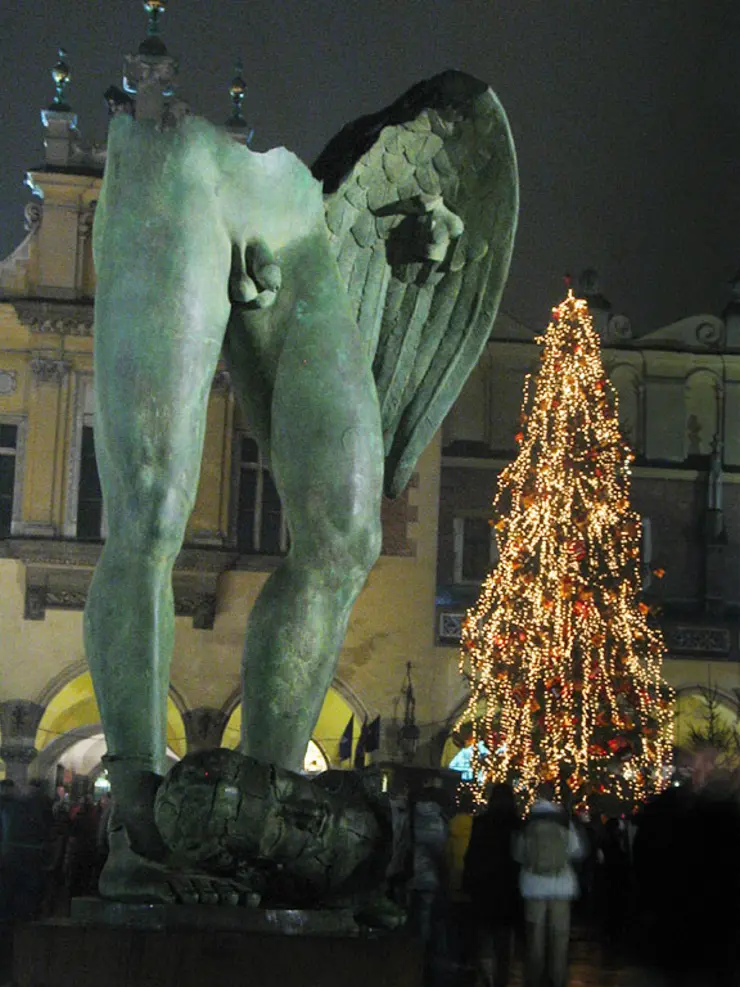
Lesen Sie hier den detaillierten Tagungsbericht von Irene Salzmann (Wien)
Das Programm des Workshops können Sie hier einsehen.
More than 30 years ago, Donna Haraway published her iconic essay "Situated Knowledge. The Science Question in Feminism and the Privilege of Partial Perspective", where she discusses the issue of objectivity in feminism. She understands "objective knowledge" as bound to a specific historical point in time and space – precisely as "situated knowledge”. While Haraway was primarily concerned with defining the relational positioning of feminism and science, the concept of "situated knowledge" has grown into a central notion in gender studies. By now, it seems necessary to reflect about its relevance today, considering the differentiation of gender related debates from feminism to queer theories, to transactivism and beyond, but also in the face of current social challenges like hate speech and fake news, conspiracy theories and public questioning of established scientific values.
The concept of “situated knowledge” not only draws attention to the general way relational conceptualizations of science are challenged by proponents of “alternative facts” as well as dynamics of denialism and hostility towards academic scholarship. It also asks how far epistemologies, evidence and knowledge are determined by gender or contain gender perspectives. Assuming that epistemologies take place in social contexts and thus are situated in space and time, how becomes a determination of difference a condition of cognition? Where and how is gender a category that governs the way in which knowledge has been and is gained?
To deepen the question of how gender and epistemologies are related, a praxeological approach can be useful. Hence, combining the perspectives on “doing gender” and “doing truth” could allow to inquire how claims of truth are linked to gender and gender politics. In such a praxeological perspective we can ask about roles and figures that perform truth and gender in arenas of contested knowledge, enabling us to discern and analyse situations where gender is inextricably assigned to aspects of truth speaking. We seek for examples, where gender is relied upon to invoke the truth, like in the politicisations of experiential and embodied knowledge in current debates on the so-called cancel culture. And we would like to study cases where gender perceived characteristics or values are attributed to concepts of un-/credibility and un-/truthfulness as e.g. in conceptions of heroism and honour, innocence and virginity or deceitfulness and fraudulence.
Thus, the conference "Gendering Epistemologies" wants to discuss how gender-shaped (especially scientific) knowledge and truth claims are tied to gender (politics) in Central and Eastern Europe in the 20th and 21st centuries. We would like to particularly focus on this region in order to strengthen its presence and representations in the debate on gender, science and politics. Furthermore, the region has faced repeated political upheavals in the 20th and 21st centuries, providing the context for numerous epistemological distortions and transformations. Comparative and contrasting examples from other regions of the world are nevertheless equally welcome.
Focussing on the connection between gender and knowledge with regard to the arenas of the production of knowledge and meaning, to the scientific persona/homo academicus, and to practices of truth and evidence, we encourage the submission of papers addressing the following or related questions:
- How is the homo academicus/scientific persona defined by gender related practices of inclusion and exclusion, difference and symbolic capital within institutions?
- How do intersectionalities and conditionalities of difference affect laboratories, fieldwork and deskwork?
- Do figures of truth have a gender?
- (How) does science (especially natural sciences and life sciences) produce gender specific knowledge?
- What kind of political-epistemological structure is inscribed in the evocation of experiential knowledge or evidence?
For more information please contact Karin Reichenbach (karin.reichenbach@leibniz-gwzo.de) and/or Dietlind Hüchtker (dietlind.huechtker@univie.ac.at).
The conference is organised by the research initiative and GWMT working group Political Epistemologies of Central and Eastern Europe (PECEE). It is sponsored by the research programme “Resilient Society for 21st Century: Crisis potentials and effective transformation” within the basic programme framework of the Strategy AV21 of the Czech Academy of Sciences, and by the Leibniz-Institute for the History and Culture of Eastern Europe (GWZO).
Vortrag: The Role of Feminist Theory in Building Complementary Knowledge (Januar 2023)
In 1999 Londa Schiebinger published her book entitled Has Feminism Changed Science (Schiebinger 1999) where she showed how the growing number of female scientists gradually transformed certain fields of science. Following her line of reasoning one can ask how feminist theories influence particular fields of knowledge today? Do they have impact on methodologies and formulation of research priorities? Do they cognitively enrich theories and consequently change the social dynamics of scientific institutions? These are important issues which require extended research in order to ask these questions for each particular scientific field. The goal of my talk is more modest. I would like to provide some evidence that feminist theories have played crucial role in creating the missing link between science studies and socio-political research (Keller 1983). Many feminist thinkers being both a scientist and critical scholar has shown that feminist theory is not only about the social and the political, but also and sometimes primarily about the cognitive and about knowing subject. Joining traditions and methodologies from scientific research and cultural and political studies results in a form of complementary knowledge, which could be truly interdisciplinary. In order to illustrate how it can work out I will shorty present selected threads of neurofeminist approach (Fine 2012, Robyn et al. 2012) and new feminist materialism (Barad 2003, Hird 2009).
Teil des Workshops war der Vortrag "Gendering Epistemologies – Gender and Situated Knowledge Perspectives from Central, Eastern and Southeastern Europe." Er fand am 10. Januar 2023 online statt im Erfurt research colloquium in the history of science
Dissidents as figures of truth (since the 1970s) (Juli 2021)
Dissidents as figures of truth (since the 1970s) / Date: 14.-16. July 2021
International conference organised by the research initiative (East) European Epistemologies (Friedrich Cain, Dietlind Hüchtker, Bernhard Kleeberg, Karin Reichenbach and Jan Surman). In cooperation with the Faculty Centre for Transdisciplinary Historical and Cultural Studies, University of Vienna; the Leibniz Institute for the History and Culture of Eastern Europe, GWZO, Leipzig; the Research Group “Praxeologies of Truth”/University of Erfurt; the Masaryk Institute and Archives of the Czech Academy of Sciences
What do Andrei Sakharov, Noam Chomsky, a 19th century sect of German Catholics, and today’s mask opponents have in common? They all have at times been called, and identified themselves as, dissidents – “those who do not agree.” But while all of them were convinced that they presented “the truth,” opposing mainstream religious, social, political or intellectual climate, they did not meet with the same reactions – for instance, Corona dissidents and Soviet dissidents seem to stand on the opposed poles of the political and social spectrum.
Today, we almost intuitively associate dissidents with Soviet intellectual nonconformists, and those from other countries of the Eastern Bloc, with towering figures like Václav Havel, Jacek Kuroń or Andriej Sacharow. At our conference, we want to look more closely at how the figure of the “dissident” became constructed and solidified across the Iron Curtain and after the fall of the Soviet Union. We will focus on practices, techniques, and media settings which (co)produce the dissident as a (mostly male) “truth figure” (Kleeberg 2019), which includes practices of staging oneself, and ways of embodying the (epistemic) values and virtues associated with this figure. As truth figures are historically heterogeneous, so is “the dissident,” varying from person to person, group to group, from country to country, and changing over time which itself is a matter of our inquiry. Yet, as a truth figure, it became an important point of reference, used as self-designation by a variety of people from different poles of the political spectrum, not only across Soviet and Post-Soviet space. Central Europe, for instance, in the 1990s witnessed a mushrooming of dissidents, who had not been identifiable as such before. Obviously, a specific relation to truth is crucial for the figure of the dissident not only as it is understood today: from ancient parrhesiastes to today's dissidents, speaking the truth to power, being “true to oneself,” “living the truth,” has been essential.
As the imaginary of truth and a depiction of concrete instructions about how to authenticate truth, truth figures form an intersection between local and transnational dissidence-discourses. In Soviet times, the dissident was created locally: in oppositional media like samizdat and through practices like creating rumors, and as enemies of the state through state media. At the same time, Radio Free Europe, Nobel Prizes, tamizdat or interviews in important journals like Le Monde or The New Yorker largely contributed to the emergence of dissident as a truth figure both locally and abroad (cf. Szulecki 2019). Some – like Russian feminist dissidents – were publicly recognized as such only abroad (Vasyakina/Kozlov/Talaver 2020).
In our conference we want to approach the question of the life and afterlife of the “dissident” as a figure of truth with particular attention to post-Soviet space. We are particularly interested in contributions addressing following topics:
- How, with which practices, strategies and arguments, by whom, and in which medial settings were/are dissidents staged as figures of truth and how were/are they delegitimized?
- How was/is the figure of the legitimate, “truthful” dissident presented and represented, how is it affected by class, gender, religion or ethnic/national origin?
- How does the alleged authenticity of the dissident as a truth figure affect disputes about truth, how does this kind of subjectified truth relate to other forms of truth?
- What role did the international recognition as well as transnational networks play in the stabilization (or destabilization) of the figure of the dissident? How did this recognition translate across borders?
- How did controversies about dissidents and attempts to delegitimize them affect their role as truth figures – be these controversies instigated by Soviet propaganda, independently of it, or coming from inside of the dissidence movement(s)?
- How did the figure of the dissident change after the breakup of the Soviet Union up until today? Which groups assumed the truth associated with dissidents for themselves by designating themselves as dissidents (historical or “new dissidents”), and what does this tell us about more general transformations of truth regimes?
- What discussions about “legitimacy” and “illegitimacy” of dissidence and dissidents were taking place over the last decades? What processes of inclusion and exclusion were at play here?
Registration: To ensure a stimulating discussion, participation in the workshop is regulated, please register personally by email to Karin Reichenbach: karin.reichenbach@leibniz-gwzo.de Those workshop events designated as public in the programme (keynote, round table, final discussion) are accessible to a general audience via this webinar link: https://zoom.us/webinar/register/WN_jbLJH6esTYCs0pTn2FIR1g
Quoted literature
- Vasyakina, Oksana / Kozlov, Dmitri / Talaver, Sasha (eds.) Feministskij samizdat: 40 let spustya [Feminist Samizdat: 40 years later]. Moscow: Common place 2020.
- Bernhard Kleeberg, Post Post-Truth. Epistemologies of Disintegration and the Praxeology of Truth, in: Stan Rzeczy / State of Affairs 2(17)/2019, 25-52. doi.org/10.51196/srz.17.2
- Kacper Szulecki, Dissidents in Communist Central Europe: Human Rights and the Emergence of New Transnational Actors, Basingstoke: Palgrave 2019.
Online Workshop: Academic Authority and the Politics of Science and History in Eastern Europe (June/July & Dec. 2020)
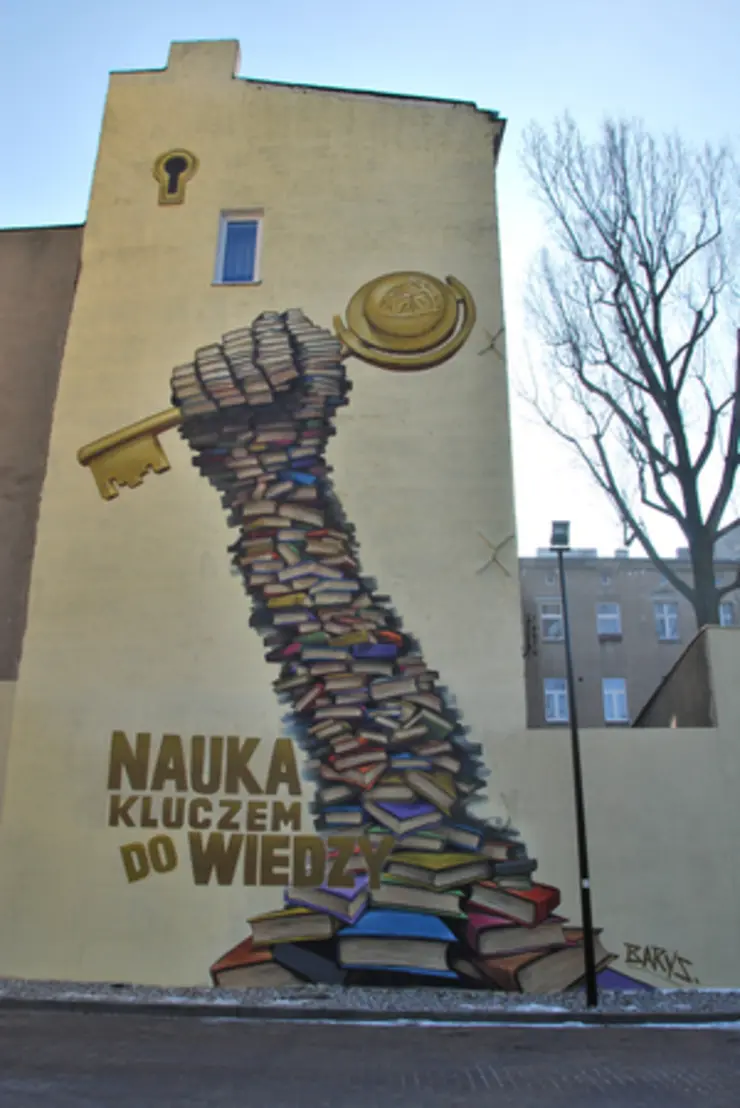
The online seminar is a fifth event organized by the Erfurt/Leipzig/Moscow working group on Political Epistemologies of (Eastern) Europe and focusses on academic authority and the scholar as the central figure of knowledge production. Observing a basic diversity and continuous transformation of epistemologies along with the emergence as well as destabilization or decline of epistemic authorities, the seminar discusses the history of epistemological shifts in Central and Eastern Europe over the past fifty years. While directing its gaze at a recently contested expert of knowledge production – the scholar, it aims to investigate historical challenges of (academic) scholarship’s role as the paramount producer of scientific truth.
Organisers: Friedrich Cain, Bernhard Kleeberg (Max Weber Center, University of Erfurt), Dietlind Hüchtker (Leibniz Institute for the History and Culture of Eastern Europe, Leipzig), Karin Reichenbach (University of Leipzig), Jan Surman (Poletayev Institute for Theoretical and Historical Studies in the Humanities, National Research University Higher School of Economics, Moscow)
In December (11./12. 2020), our workshop will be held online via Webex:
Fr. 11 Dec. 2020
9:00–9:30 Introduction, Procedure, Test of System
9:30–10:15 Friedrich Cain – System Optimisation: On the Responsibility of Socialist Science Studies
10:30–11:15 Miglena Nikolchina – Between Evasion and Confrontation: Opposing Communist Dogma in the Humanities: The Bulgarian Case(s)
11:30–12:15 Eduard Burget, Petra Loučová, Doubravka Olšáková – Grey Zone: Official or Dissent Science in Communist Academia? (working title)
Lunch break
13:15–14:00 Andreas Langenohl – Historiography Overtaken by History? The Self-authorization of Academic Historians in Russia of the 1990s
14:15–15:00 Anne Kluger – “Honecker’s Vassal” or a Prehistorian in Service of Science? The Concept of “the Scholar” in the Debate on Joachim Herrmann and the Evaluation of Former East-German Researchers in Reunified Germany
Sa. 12 Dec. 2020
9:00–9:45 Ionuț Mircea Marcu – The Historiographical Field in Post-socialist Romania: Institutions, Careers and Epistemic Innovations
10:00–10:45 Michał Pawleta – In the Shadow of the Omnipresent Past: The New Approach of the Contemporary Poles to the Archaeological Past
11:00–11:45 Andrea Pető – Making Illiberal Memory Politics via Creating Alternative Systems and Institutions of Academic Authority
Lunch break
12:45–13:30 Karin Reichenbach – Practices of Evidence in Pseudo-Science
13:45–14:30 Ella Rossman – Gender History in Post-Soviet Russia: Legitimation of the New Field and Research De-politicization
14:30–15:00 Final Discussion, Further Procedure
The online seminar in June/July 2020 was part of the Kolloquium “Wissenschaftsgeschichte”, University of Erfurt. 16.6.2020, 18:00-20:00: Friedrich Cain/Dietlind Hüchtker/Bernhard Kleeberg/Karin Reichenbach/Jan Surman: “Academic Authority and the Politics of Science and History in Eastern Europe – Introduction”; Michał Pawleta (Poznań): In the Shadow of the Omnipresent Past: The New Approach of the Contemporary Poles to the Past. 30.6.2020, 18:00-20:00: Miglena Nikolchina (Sofia): Is Literary Theory Dead?; Andrea Pető (Budapest): Making Illiberal Memory Politics via Creating Alternative Systems and Institutions of Academic Authority. 7.7.2020, 18:00-20:00: Anne Kluger (Münster): “Honecker’s Vassal” or a Prehistorian in Service of Science? The Concept of “the Scholar” in the Debate on Joachim Herrmann and the Evaluation of Former East-German Researchers in Reunified Germany; Ionuț Mircea Marcu (Bucharest): The Historiographical Field in Post-Socialist Romania: Institutions, Careers and Epistemic Innovations. 14.7.2020, 18:00-20:00: Ella Rossman (Moscow): Gender and Gender History in Post-Soviet Russia: Depoliticization of Terminology and Disciplinary Marginalization; Andreas Langenohl (Gießen): History and the Memory Wars of the Wild 1990s: The Case of Russia
Academic Authority and the Politics of Science and History in Eastern Europe (March 2020)
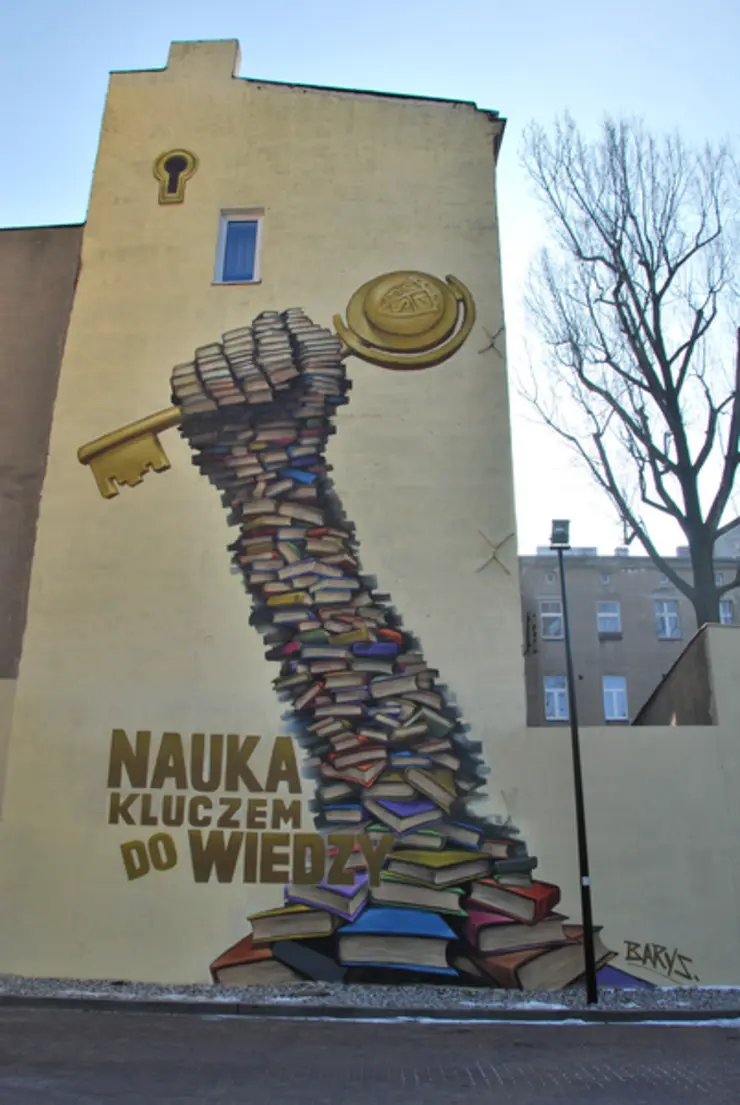
GWZO, Specks Hof (Entrance A), 4th floor / Reichsstraße 4–6, 04109 Leipzig, 20-21 March 2020
Organisers: Dietlind Hüchtker and Karin Reichenbach Friedrich Cain, Bernhard Kleebergand Jan Surman
Funded by: Forum for the Study of the Global Condition
Contact: Friedrich Cain
Contributors: Anne Kluger, Andreas Langenohl, Ionuț Mircea Marcu, Anna Mazanik, Miglena Nikolchina, Doubravka Olšáková, Michał Pawleta, Andrea Pető, Ella Rossman.
The workshop is the fifth in a series of sessions organized by the Erfurt/Leipzig/Moscow working group on Political Epistemologies of (Eastern) Europe and focusses on academic authority and the scholar as the central figure of knowledge production. Observing a basic diversity and continuous transformation of epistemologies along with the emergence as well as destabilization or decline of epistemic authorities, the workshop discusses the history of epistemological shifts in Central and Eastern Europe over the past fifty years. While directing its gaze at a recently contested expert of knowledge production – the scholar, it aims to investigate historical challenges of (academic) scholarship’s role as the paramount producer of scientific truth.
The workshop covers a broad spectrum of topics related to this field. We will analyze challenges, transitions, liminalities, and practices concentrating on the socialist and post-socialist systems of humanities in Eastern Germany, Russia, Hungary, Romania, Czechia and Poland.
Beyond Post-Truth: Media Landscapes in the “Age of Insecurity” (June 2019)
Center for Study of Civil Society and Human Rights, Faculty of Liberal Arts and Sciences (Smolny College) of St. Petersburg State University, 3-4 June 2019
Organisers: Daria Petushkova and Jan Surman in cooperation with Friedrich Cain, Dietlind Hüchtker, Bernhard Kleebergand Ilya Kalinin
Funded by: IGITI, National Research University Higher School of Economics, Moscow /// Leibniz Institute for the History and Culture of Eastern Europe (GWZO), Leipzig /// Max Weber Center for Advanced Cultural and Social Studies, University of Erfurt /// Justus-Liebig-University Gießen (chair for “Allgemeiner Gesellschaftsvergleich”)
Contact: beyondposttruth@gmail.com
Contributors: Armen Aramyan, Stef Aupers, Aleksander Bikbov, Polina Boyarshinova, Konstantin Gabov, Diego Han, Nikita Khokhlov, Darya Khokhlova, Bernhard Kleeberg, Philipp Kohl, Andreas Langenohl, Zhanna Mylogorodska, Olga Savinskaya, Sophie Schmähig, Philipp Smirnov, Olga Solovyeva, Ilya Yablokov, Greg Yudin, Alexander Zhigaylov
Programme | Conference Homepage | CfP
Recent years have witnessed an unprecedented rise of a new category of description within the world of media and information. Fake news and fake facts, post-truth and post-politics, have started to govern the medial and social life, unmistakably attracting also academic attention. At the same time they give an illusion as if true news and true facts, truth and politics, were fixed objects before the rise of populism and authoritarian regimes in East and West. This creates a narrative of a current informational insecurity, which follows an (alleged) age of informational clarity. How simplifying this narrative might be, and how diverting the gaze from other, often more crucial changes in local and global media landscapes (like changes of attention economy following the acceleration of information and the multiplication of truth makers), which are often closely interconnected with it, “fakeness” of the “post” era, or the “post-truth-regime,” becomes to be the reality we live by.
Taking “fake,” “post or “truth” as categories in current social, cultural, medial, legal, political and philosophical, discourse, our conference intends to look at the construction of these entities and practices connected with their use in the current information regime. While the focus of our conference will be Russian-language media, it is our intention to place them within the recent alterations of international media and not particularising it, preferably by comparative approaches. We inquire into changes that affected “truth figures” and “truth scenes” after 1989 and after the collapse of the bipolar world order, situating local particularity within the global trends. We are particularly interested in discussing the conceptual frameworks with which the international situation can be analysed beyond the simplifying rhetorical figures like “true,” “fake,” “propaganda” etc. By engaging into discussion with actors of conventional and new media we also want to have a glance behind the practices of creating information and engage with non-academic discourses.
A New Culture of Truth? On the Transformation of Political Epistemologies since the 1960s (Oct. 2018)
Max-Weber Centre/University of Erfurt, 5-6 Oct. 2018
Organisers: Friedrich Cain, Dietlind Hüchtker, Bernhard Kleeberg, Jan Surman
Funded by: Forum for the Study of the Global Condition /// Max Weber Center for Advanced Cultural and Social Studies, University of Erfurt
Contact: Friedrich Cain
Contributors: Armen Aramian, Anna Grutza, Karl Hall, Jayson Harsin, Andreas Langenohl, Juliana Lizer, Verena Lehmbrock, Jakub Motrenko, Mike Plitt, Joachim v. Puttkamer, Sophie Schmäing, Marci Shore, Oleksandr Svyetlov, Paula-Irene Villa, Ilya Yablokov
2017 saw the alleged rising of a “post-truth era,” closely associated with a destabilisation of familiar epistemologies and the dismissal of their classical gate keepers. New political epistemologies have emerged that follow the truth regimes of specific group attitudes – often nationalist, chauvinist, xenophobic – and are spread via both new and traditional media, such as Facebook and Twitter, television and newspapers, emitted by private, semi-official, and even governmental brokers.
The deliberate use of ‘versions’ of truth has become very influential, as political parties promoting them have begun restructure media landscapes or promote new politics of memory etc. Consequences have become manifest in nation states, international organizations and unions: for a long time, consensus building stemmed from the integration of different interests on basis of the same epistemological values (truthfulness, trust etc.) and categories (facts, objectivity etc.), that are now being questioned. Classical ‘truth figures’ like the scientist, the journalist, or the dissident have been joined by bloggers, spin-doctors, or debunkers who dwell in places that seem to have emerged only recently, and especially with the establishment of Web2.0.
Though “fake news” and “alternative facts” have predominantly been discussed with reference to the US, the workshop’s main focus will be on the former Warsaw Pact countries, where the negotiation of truth has a specific history: After 1989, Marxism lost its monopoly of interpretation to other – often “Western” – truth regimes. Dissidents and social movements, who had emphatically (re-) claimed ‘truth’ as a weapon against their regimes before 1989, have smaller impact today, due to the digital atomization of perspectives.
These shifts in epistemological landscapes cannot be observed and described easily along the well-known lines of propaganda, information and disinformation etc. Following a praxeological approach to truth (Kleeberg/Suter 2014) the aim of the workshop was to systematically assess these changes. We therefore examined the practical contexts in which truth claims are embedded, the (trans-)formation or (de-)stabilization of “truth scenes” (e.g. the trial) and “truth figures”. We took a closer look at the shift(s) of truth regimes from the heyday of the Cold War in the 1960s until today. We paid special attention to the transformation of medial settings of information flows and the processes of forming public opinion, which were being set into relation with the entangled history of political epistemologies of (Eastern) Europe. Of course, these phenomena cannot only be spotted in the US and post-Soviet spaces. Therefore, we were very much interested in comparative case studies from other global regions without specific post-Soviet experiences.
Bibliography
Kleeberg, Bernhard / Robert Suter, “Doing Truth. Bausteine einer Praxeologie der Wahrheit”, in: Wahrheit. Zeitschrift für Kulturphilosophie 8 (2014/2), 211-226.
Political Epistemologies of the Soviet Union: 1917-1945-1967 (June 2018)
Moscow, 21-22 June 2018 (Poletayev Institute for Theoretical and Historical Studies in the Humanities (IGITI), National Research University Higher School of Economics, Moscow)
Organisers: Jan Surman and Alexander N. Dmitriev (local organisers) Friedrich Cain, Dietlind Hüchtker, Bernhard Kleeberg
Funded by: IGITI, National Research University Higher School of Economics, Moscow /// Max Weber Center for Advanced Cultural and Social Studies, University of Erfurt /// Leibniz Institute for the History and Culture of Eastern Europe (GWZO), Leipzig
Contact: Jan Surman
Contributors: Alexander N. Dmitriev, Igor Kaufmann, Daria Drozdova, Karl Hall, Geert Somsen, Galina Babak, Ilia Kukulin, Angelina Lucento, Michał Murawski, Anna Echterhölter, Aleksei Lokhmatov, Sascha Freyberg, Daria Petushkova, Alexander Bikbov, Rossen Djagalov, Christopher Donohue
Programme | Report | Publication
The October Revolution of 1917 proclaimed the rise of a new society based on the Marxist(-Leninist) philosophy. Dialectics, materialism, proletarianism etc. have since then dominated Soviet discussions in arts, scholarship, sciences etc. However, the epistemic questioning of the boundaries between science, ideology, politics – but also between science and arts, or between science and technology – could now immediately effect changes in legislation, education, or administration. Yet, Marxist epistemology still transgressed Soviet territories, since discussions of Marxism and its intellectual importance were carried out from Paris to Peking, from Almaty to Avenida Viena. After 1945, new geopolitical conditions gave power to certain Central European Marxisms. Clearly, both continuities, but also breaks occurred to the whole intellectual sphere on personal, social, epistemic etc. levels, influencing not only the Soviet Union but the whole globe.
Our conference concentrated on the political epistemologies of broadly understood intellectuals – in the first place scholars and scientists, but also artists or literati. Following Yehuda Elkana’s ideas on “anthropology of knowledge,” and Karl Mannheim’s description of epistemologies as “aspect structures,” we concentrated on the question how individual and collective epistemologies were structured by, and at the same structured political attitudes of intellectuals, scholars or scientists, but also artists and literati. Accepting the malleability and interchangeability of what we analytically describe as cultural, social, political etc., we inquired how these categories, with their key epistemic concepts, like truth, proof, experiment, but also critical intervention or autonomy, were framed and also how they informed the identity building of individuals and groups intending to represent them.
With a wide range of examples, from the sciences and the newly appearing projects of a “science of science”, through arts to a broader intellectual and academic sphere, we encouraged interdisciplinary approaches. This brought together aspects Marxism intended to amalgamate and which since the demise of Marxism have grown apart. At the same time, looking at the ways Marxist epistemology was differently appropriated and contested, allowed us to bring forward its specificity and the specificity of approaches adjacent or contesting.
Political Epistemologies of Eastern Europe (Nov. 2017)
Max Weber Center/Univ. of Erfurt, 24-25 Nov. 2017
Organisers: Friedrich Cain, Bernhard Kleeberg, Dietlind Hüchtker, Jan Surman
Funded by: Forum for the Study of the Global Condition /// Max Weber Center for Advanced Cultural and Social Studies, University of Erfurt
Contact: Friedrich Cain
Contributors: Marta Bucholc, Alexander N. Dmitriev, Vedran Duančić, Gábor Gángó, Karl Hall, Peter Haslinger, Tomáš Hermann, Kornelia Kończal, Claudia Kraft, Katherine Lebow, Riccardo Nicolosi, Emilia Plosceanu, Katrin Steffen, Joanna Wawrzyniak, Monika Wulz
Programme | Report | Publication
The first half of the 20th century was an age of global accelerated social and political transformation, at the time and afterwards conceived as either evolution, revolution, or reform. While the entity of Eastern, Central and South-Eastern Europe was heterogeneous, it was home to a number of parallel processes inducing what seem to be similar epistemologies, varying only in local forms. To localize these variations, our workshop focused on reflections on science, scholarship and higher education done in this region from the end of WWI until the 1960s.
The scholars we focused on were not only “scientists of science”, but often analyzed and even heavily influenced political and social change from their specific standpoints, ranging from philosophy, history, sociology, psychology to especially pedagogy. However, most of them positioned their projects at transdisciplinary junctures. They were eager to introduce brand new sciences or at least to fundamentally reshape existing disciplines. Many politically engaged scholars suggested and helped to implement programs to investigate science, thought or creativity in order to foster individual, social or national progress. We understand such projects as political epistemologies – theories of knowledge, that are preconditioned by political convictions. In times of national and cultural plurality – either multiplication or fragmentation – these theories often emphasized a plurality of knowledge.
Our workshop aimed to investigate such political epistemologies in their respective academic, regional or national embedding. The workshop had two main interests: First, to uncover the panorama of contributors that goes beyond such prominent figures like Alfred Tarski or Ludwik Fleck in Warsaw and Lviv, Jan Patočka and Emmanuel Rádl in Prague, Boris Hessen and Aleksander Bogdanov in Moscow and St. Petersburg or Karl Mannheim and Michael Polanyi, both born and socialized in Budapest. For this we particularly encouraged contributions on persons and places hitherto marginalized in recent research. Second, we wanted to investigate different theoretical concepts and practical methods that originated in the region and uncover biographies of these concepts and methods, whether local or transnational.
Pre- and Postdoc Workshops
Eastern and South Eastern European Histories of Science and the Humanities 2020
Over the last couple of years, historians of science and the humanities have taken great interest in projects related to Central, Eastern and South Eastern Europe and their global interconnectedness. However, opportunities for a joint discussion of such projects are rare and often rely on ad hoc initiatives. After the inauguration of a forum for projects that link approaches from the history of science and the humanities with specific regional expertise in summer 2019 at Erfurt, we want to continue the collaborative venture of elaborating on (trans)regional historical and political epistemologies.
The initiative aims at a productive debate between projects from history, sociology, literature, media studies, etc. dealing with scientific endeavours and specific investigations in (academic) research, institutions, migration of knowledge etc. We discuss perspectives on the local, regional, (post-)imperial or national frameworks of Central, Eastern and South Eastern Europe in the light of specific theoretical frames, challenge the methodological perspectives of these projects, and seek to identify synergies between them.
The workshop is open to all young researchers focussing on the history of politics, materiality, and practices of (non-)academic research with case studies centred in or related to Central, Eastern and South Eastern Europe in the broadest sense. To create a productive environment, we are particularly interested in discussing work in progress. The workshop will be based on pre-cirulated papers from ongoing research projects. They will be read and evaluated by all participants and each invited paper will be assigned to a senior researcher for a special commentary to open the floor.
The seminar "Central, Eastern and South Eastern European Histories of Science and the Humanities" will take place on Friday, 2 October 2020 between 10am and 6pm at the University of Vienna. It is hosted jointly by the Department of History and the Department of Contemporary History (University of Vienna) in collaboration with the research initiative "(East) European Epistemologies" at the Max-Weber-Kolleg for Advanced Cultural and Social Studies, Erfurt.
Working languages will be English and German, a passive understanding of both is required. Reimbursement of travel expenditures and accommodation for the speakers will be ensured by the organizers. Scholars willing to participate are asked to submit a short proposal (up to one page) by 1 June 2020 along with a short biographical note. Notifications upon acceptance will be sent out no later than 10 June 2020. The texts (pdf) need to be submitted by 13 September 2020 in order to pre-circulate among all participants in time.
Dr. Friedrich Cain, Universität Erfurt
Prof. Dr. Bernhard Kleeberg, Universität Erfurt
Dr. Jan Surman, HSE Moscow
Lukas Becht, University of Vienna
Prof. Dr. Claudia Kraft, University of Vienna
Prof. Dr. Anna Echterhölter, University of Vienna
Local Organiser:
Lukas Becht
Institut für Osteuropäische Geschichte, Spitalgasse 2/Hof 3.2, 1090 Wien, Austria
Eastern and South Eastern European Histories of Science and the Humanities 2019
Max Weber Center/Univ. of Erfurt, 12 July 2019
Organisers: Friedrich Cain, Bernhard Kleeberg, Jan Surman
Funded by: Max Weber Center for Advanced Cultural and Social Studies, University of Erfurt /// Chair for the History of Science, University of Erfurt
Contact: Friedrich Cain
Contributors: Lukas Becht, Frank Henschel, Adela-Gabriela Hincu, Réka Krizmanics, Aleksei Lokhmatov, Kai Johann Willms
Over the last couple of years, historians of science and the humanities have taken great interest in projects related to Eastern, Central and South Eastern Europe and their global interconnectedness. However, opportunities for a joint discussion of such projects are rare and often rely on ad hoc initiatives. We would therefore like to inaugurate a forum to discuss projects that link approaches from the history of science and the humanities with specific regional expertise.
Our seminar will bring together projects from history, sociology, literature, media studies etc. dealing with scientific endeavour and specific investigations in (academic) research, institutions, migration of knowledge etc. We will discuss perspectives on the local, regional, (post-)imperial or national frameworks of Eastern, Central and South Eastern Europe in the light of specific theoretical frames, and challenge methodological perspectives of these projects.
The seminar is open to all researchers focussing on the history of politics, materiality, and practices of (non-)academic research, discussing Eastern, Central and South Eastern Europe case studies in the broadest sense. To create a productive environment, we are particularly interested in discussing work in progress. Our discussion will be based on texts from ongoing research projects, with opening expert commentaries. The reading material will be pre-circulated among all registered participants.
The seminar South/Eastern and Central European Histories of Science and Knowledge will take place on Friday, 12 July 2019 between 10am and 6pm at the Max Weber Centre for Advanced Cultural and Social Studies in Erfurt, hosted by the research initiative (East) European Epistemologies. Working languages will be German and English.
